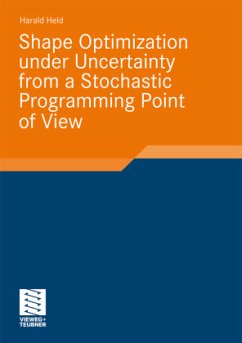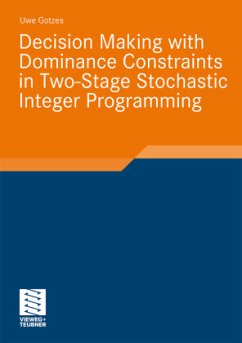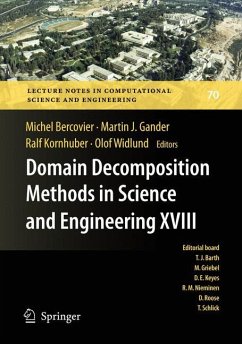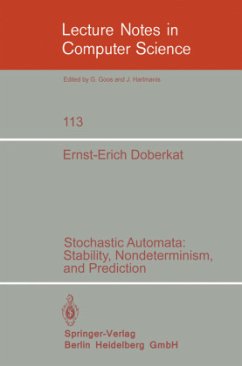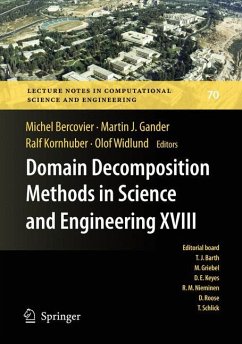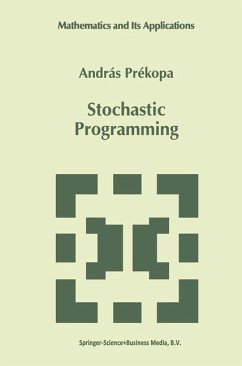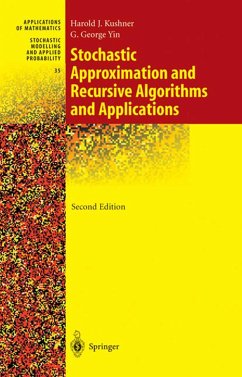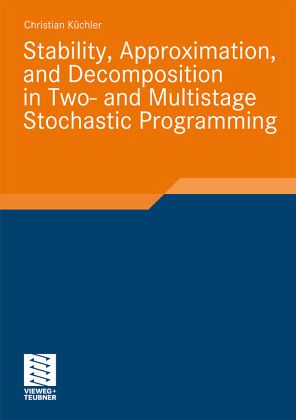
Stability, Approximation, and Decomposition in Two- and Multistage Stochastic Programming

PAYBACK Punkte
0 °P sammeln!
Stochastic programming provides a framework for modelling, analyzing, and solving optimization problems with some parameters being not known up to a probability distribution. Such problems arise in a variety of applications, such as inventory control, financial planning and portfolio optimization, airline revenue management, scheduling and operation of power systems, and supply chain management.Christian Küchler studies various aspects of the stability of stochastic optimization problems as well as approximation and decomposition methods in stochastic programming. In particular, the author pr...
Stochastic programming provides a framework for modelling, analyzing, and solving optimization problems with some parameters being not known up to a probability distribution. Such problems arise in a variety of applications, such as inventory control, financial planning and portfolio optimization, airline revenue management, scheduling and operation of power systems, and supply chain management.
Christian Küchler studies various aspects of the stability of stochastic optimization problems as well as approximation and decomposition methods in stochastic programming. In particular, the author presents an extension of the Nested Benders decomposition algorithm related to the concept of recombining scenario trees. The approach combines the concept of cut sharing with a specific aggregation procedure and prevents an exponentially growing number of subproblem evaluations. Convergence results and numerical properties are discussed.
Christian Küchler studies various aspects of the stability of stochastic optimization problems as well as approximation and decomposition methods in stochastic programming. In particular, the author presents an extension of the Nested Benders decomposition algorithm related to the concept of recombining scenario trees. The approach combines the concept of cut sharing with a specific aggregation procedure and prevents an exponentially growing number of subproblem evaluations. Convergence results and numerical properties are discussed.






